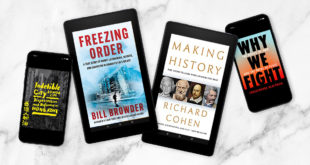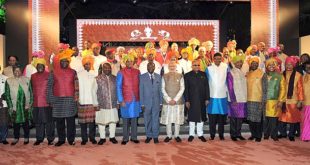The best history of AprilChris Schluep | April 4, 2022The books in the best history of April are all of a theme. Usually, the monthly list includes a few titles that could be considered less historical, more esoteric. For instance, a book about the history of the mosquito comes to mind (it’s an important, if not immediately obvious, history by the way). But this month the books are all very historical. Is that what happens when you feel like you are watching history play out in real time on...
Read More »Managing the academic job market
What follows is a summary of what I see as the key advice, with links to other resources that go into more depth or do a better job than I can. It’s going to be most accurate for economics, political science, public policy & other professional schools This post is a continuous work in progress, and it is comes not only from my own experience but that of a huge number of colleagues and readers. It can benefit from your feedback too, so please email me if a you have something to add (or if...
Read More »Keen On podcast, with Andrew Keen
Hosted by Andrew Keen, Keen On features conversations with some of the world’s leading thinkers and writers about the economic, political, and technological issues being discussed in the news, right now. In this episode, Andrew is joined by Christopher Blattman, author of Why We Fight: The Roots of War and the Paths to Peace. Find more Keen On episodes and additional videos on Lit Hub’s YouTube Channel! ________________________ Christopher Blattman is the Ramalee E. Pearson Professor of...
Read More »Canada’s tow truck mafia: A lesson in why criminal governance emerges
Criminal governance emerges to regulate violence and black market business when the state can or does not. Even in Toronto. To understand why there’s so much crime in Canada’s towing industry, we have to back up and look at what many local organizations blame as being part of the problem: the way police call tow trucks to the scene of a wreck, and the lack of industry regulation. When there’s a wreck that requires a vehicle to be towed, the responding police department generally has a policy...
Read More »Why are so many African and Asian nations ambivalent about Russia’s invasion? International identity politics
Americans agree on few issues, but one thing they have come together on is condemnation of Russian aggression. Western Europeans too. But not so the rest of the world. To explain India’s muted diplomatic reaction, Western papers emphasize the fact that India gets most of its arms from Russia, but here is an interesting NPR panel broadening the view: FRAYER: And the news commentary here about sanctions and diplomacy is also often sympathetic to Russia. Listen to how one of India’s most...
Read More »The best podcasts on Russia-Ukraine, new papers on African politics, the replication crisis of R, and other links I liked
[unable to retrieve full-text content]Six *massive* murals span hundreds of feet across the walls of a San Quentin prison food hall, depicting the history of California in epic scale. A photo essay and podcast. Podcasts on what is happening in Ukraine. So many of them. My favorites so far? Ezra Klein interviews Fiona Hill, and Zack Beauchamp interviews Yoshiko […] The post The best podcasts on Russia-Ukraine, new papers on African politics, the replication crisis of R, and other links...
Read More »The best new books on economics
Nothing could be more relevant today than war and peace. Why We Fight (Viking, £18.99) by Christopher Blattman of the University of Chicago is an outstanding and original book on this topic. Blattman turns what most of us think about violence on its head. It is not frequent; it is rare. There are thousands of potential conflicts. But mostly they do not become violent, because fighting is costly and the outcome is unpredictable. It is far better to rub along together in mutual loathing...
Read More »State-building on the Margin: An Urban Experiment in Medellín
[unable to retrieve full-text content]2022 The post State-building on the Margin: An Urban Experiment in Medellín appeared first on Chris Blattman.
Read More »Gang Rule: Understanding and Countering Criminal Governance
[unable to retrieve full-text content]2021 The post Gang Rule: Understanding and Countering Criminal Governance appeared first on Chris Blattman.
Read More »The new Kashmir: How I think the Russia-Ukraine conflict could play out
After reading many things, talking to colleagues knowledgable about Russia, thinking about parallels to other conflicts, and idly speculating about a place that five months ago I struggled to find on an unlabelled map, here are some thoughts. One plausible scenario is that we are looking at the next Kashmir—something that will soon evolve into a tense but durable “peace” without any real settlement, but at least one where few people are dying. For the next while there will be more fighting...
Read More » Chris Blattman
Chris Blattman




